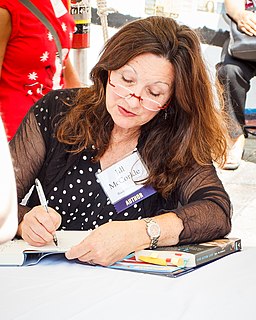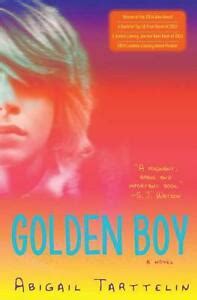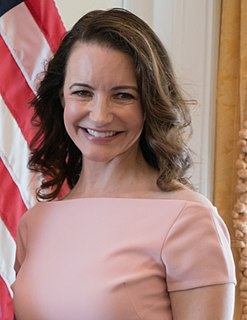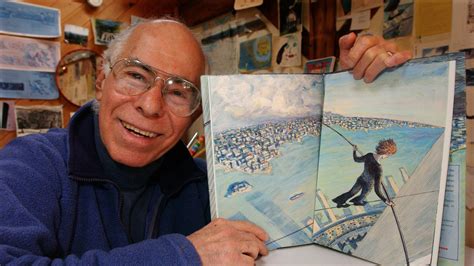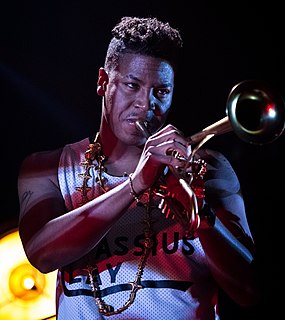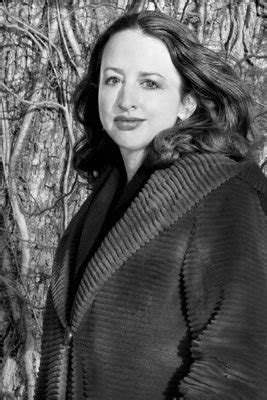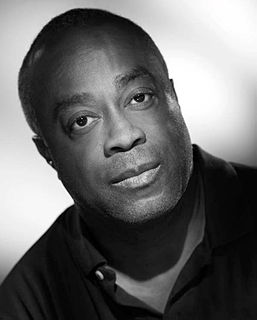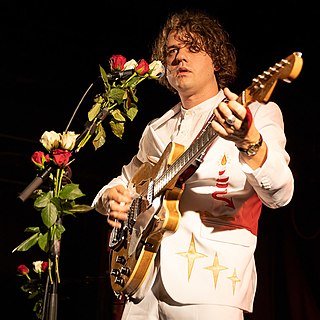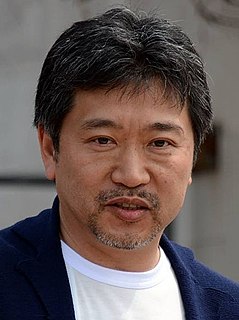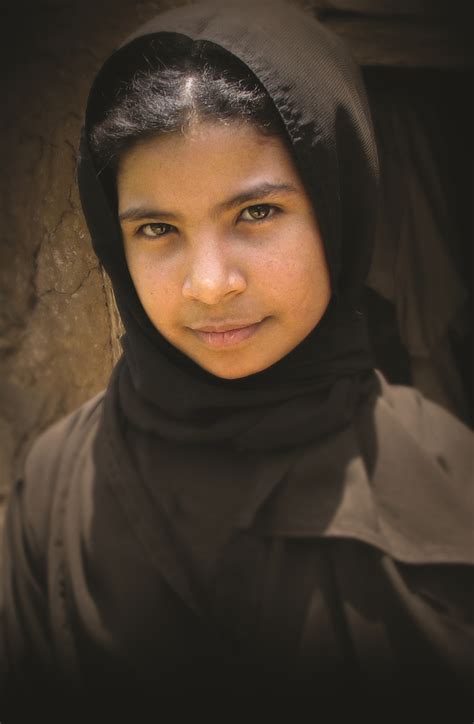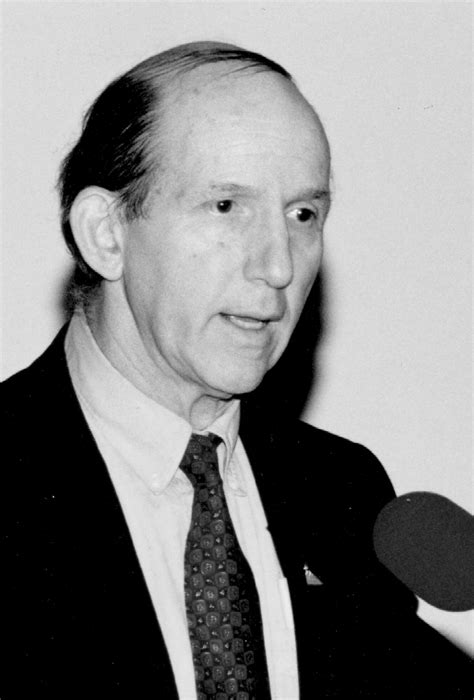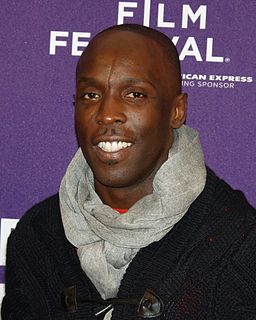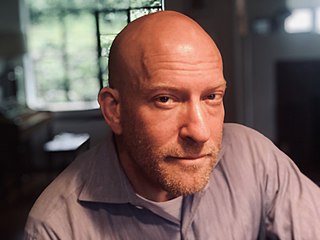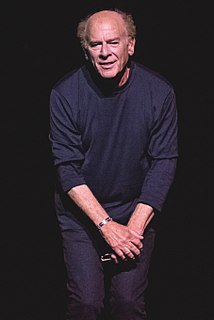Top 1200 Neighborhood Quotes & Sayings - Page 20
Explore popular Neighborhood quotes.
Last updated on November 17, 2024.
We used to all come outside when the streetlights came on and prowl the neighborhood in a pack, a herd of kids on banana-seat bikes and minibikes. The grown-ups looked so silly framed in their living-room and kitchen windows. They complained about their days and signed deep sighs of depression and loss. They talked about how spoiled and lucky children were these days. We will never be that way, we said, we will never say those things.
I would have never dreamed that my career would be this successful. I grew up in an average home in Barbados, and we didn't live in the best neighborhood. But I was never aware that we were poor; my mom never made us feel that way. She loved me unconditionally. She made us feel anything was possible and instilled in me such confidence.
What you're born with dictates your life. Do you run home after dark? Do you choose an apartment in a questionable neighborhood? I dated a guy a few years ago in California, actually who was, as we say in England, "built like a brick shithouse." He was a lovely guy, but I thought, his arms are as big as my head, he could kill me. I don't think that men would predict the kinds of things that women think about when you are contemplating having a relationship.
At home I used to spend calm, pleasant nights with my family. My mother knit scarves for the neighborhood kids. My father helped Caleb with his homework. There was a fire in the fireplace and peace in my heart, as I was doing exactly what I was supposed to be doing, and everything was quiet. I have never been carried around by a large boy, or laughed until my stomach hurt at the dinner table, or listened to the clamor of a hundred people all talking at once. Peace is restrained; this is free.
There are going to be a lot of questions, not just in my country, but across the Middle East. Is Israel going to continue to be "Fortress Israel"? Or, as we all hope, become accepted into the neighborhood, which I believe is the only way we can move forward in harmony. And no matter what's happening in the Middle East - the Arab Spring, et cetera, the economic challenges, high rates of unemployment - the emotional, critical issue is always the Israeli-Palestinian one.
We do things tastefully but we do a lot. My mom has a lot of traditional Christmas things she likes us to do together. We get fresh greens and make garlands for the house. She has a list of things to do, we bake cookies together and deliver them around the neighborhood. My mother likes to make gifts for everyone we know, including all my friends. She remembers everyone.
By now, the morning sun was just over the horizon and it came at me like a sidearm pitch between the houses of my old neighborhood. I shielded my eyes. This being early October, there were already piles of leaves pushed against the curb—more leaves than I remembered from my autumns here—andless open space in the sky. I think what you notice most when you haven’t been home in a while is how much the trees have grown around your memories.
It's really the story of a young woman, or two women, growing up in Naples in a poor neighborhood. The way that they get out of it - or don't get out of it - that's part of it. But it's also the story of the mid-20th century in Italy so it's really like a social, historical and personal novel. I think that even though I didn't live in Italy in those years, it did cover that same type of generational upbringing that someone like me might've had in America.
One of the crucial underpinnings of New York as a culture capital is that there are multiple markets. There is not just one art gallery district, there are several art gallery districts. I feel that there should be art galleries and art studios in every neighborhood without exception. They should be integrated into the social and physical fabric of the streets. If we want a lively city, we can't just have high towers and dense constructions, we have to have living organisms of streets and neighborhoods. And the arts are a crucial part of that.
There are various methods by which you may achieve ignominy and shame. By murdering a large and respected family in cold blood and afterward depositing their bodies in the water companies' reservoir, you will gain much unpopularity in the neighborhood of your crime, and even robbing a church will get you cordially disliked, especially by the vicar. But if you desire to drain to the dregs the fullest cup of scorn and hatred that a fellow human creature can pour out for you, let a young mother hear you call dear baby "it.
Well, 9/11 made me think about the towers, and the fact that I lived in New York for a long time, while they were being built. In fact, I had a studio that was ripped out, along with the whole neighborhood, to put the towers in. I saw them go up. I lived with them, running past them in the morning. And they were like part of my furniture.
But, once again, when I said I'm so grateful for my mom just being adamant about me staying in public school - that is what allowed me to be exposed to so many different types of people. I went to a high school that was by the beach. I elected to do bussing my junior high school years. And my first year of high school, I would take the bus from my neighborhood to the beach schools. And at those schools, you had such a mix of so many types of kids.
The American dream is about achieving happiness. When you become a fire fighter, a police officer or a teacher or a nurse, you know you're not going to become a billionaire. And what my parents achieved working as a bartender and a maid at a hotel after arriving here with nothing, no education, no money. The first words my dad learned in English where I'm looking for a job.You know what my parents achieved? They owned a home in a safe and stable neighborhood. They retired with dignity and they left all four of their children better off than themselves.
People call what we do "stretch music." This is our style, and one of the newer, in vogue ways of playing creative, improvised music. It really grew out of me trying to address something that I saw in my everyday life in my neighborhood - trying to develop that and refine that and excavate exactly what that was in a way that, when I communicated it, it was palpable and easily read. That started really early. Why it started was from something that I was really angry about.
At the Neighborhood Playhouse School of Theatre, Sanford Meisner said, 'When you go into the professional world, at a stock theatre somewhere, backstage, you will meet an older actor, someone who has been around awhile. He will tell you tales and anecdotes, about life in the theatre. He will speak to you about your performance and the performances of others, and he will generalize to you, based on his experience and his intuitions, about the laws of the stage. Ignore this man!'
After I got out of law school and worked in a big law firm, I thought, there are so many kids like me, in my neighborhood, that could be here if they had more support from their families, better financial aid. But the gap is so wide once you miss that opportunity. So I was always interested in figuring out, How do you bridge that? I felt, as a lawyer, when I was mentoring and working with kids, that I gained a level of groundedness that I just couldn't get sitting on the forty-seventh floor of a fancy firm.
Any Black person in amerika [sic], if they are being honest with themselves, have got to come to the conclusion that they don't know what it feels like to be free. We aren't free politically, economically, or socially. We have very little power over what happens in our lives. In fact, a Black person isn't free to walk down the street. Walk down the wrong street, in the wrong neighborhood at night, and you know what happens.
Ordinarily my mom just sunk deeper into her corner of the couch and ignored it. She had succesfully ignored a quarter of a century of entropy and decay, had sat peacefully crunching popcorn and drinking soda while the house fell down around us. If I had to guess the number of books she read during that time, I would place the number at somewhere in the neighborhood of forty thousand.
Famously in 1936, Oswald Mosley led a march of his British black shirts through a mostly Jewish neighborhood, in the east end of London. What resulted was what they called the "Battle of Cable Street", where Oswald Mosley and his fascists basically got the snot beaten out of them when East London rose up against them and beat them up.
Mice and any rodentia. Guinea pigs. Even rabbits, I can't stand. Rabbits are cousins to rats. It's a class thing. If you had to grow up with rats scampering in your backyard, because the city services were cut in half and the population in your neighborhood doubled, then that also is going to mean that the flora and fauna are going to grow as well. So that's a part of it. That's why I can't go to Hindu countries where they respect rats and mice, and I can't go camping.
I'm very much inspired by the Latin music, especially the romantic boleros. Not that when I sit to write a play I listen to boleros. But I think it's part of my DNA, it's part of my upbringing. I grew up in a house where this is the kind of music my parents used to listen to. This is the kind of music I would even hear in my neighborhood. I think that sort of romanticism is part of the culture.
I grew up in low-income areas and I've seen people take negative energy and just accept it. They give into and end up living a pretty rough life. At a young age, I just knew I wasn't going to give in because I didn't want to end up being one of those people in the neighborhood that didn't have anything and lived a hard life.
Coming from the South and growing up in L.A. where it was so segregated - worse than the South in many ways - all the people in my neighborhood were from the South. So you had that Southern cultured environment. The church was very important. And there were these folk ways that were there. I was always fascinated by these Southern stories, people would share these mystified experiences of the South. I wanted to talk about folklore.
I grew up in the Midwest and never really felt at home there, and when I got to New York, I was really fearless. I feel like I really fell in love with the the place. But then, it's a place where your world is really big at first and then becomes really small. I found myself hardly leaving my neighborhood, like I made it into a small town.
I would say I'm black because my parents said I'm black. I'm black because my mother's black. I'm black because I grew up in a family of all black people. I knew I was black because I grew up in an all-white neighborhood. And my parents, as part of their protective mechanisms that they were going to give to us, made it very clear what we were.
I don't believe in art like I used to. I believe in something beyond it, something that contains art and everything else. But I just don't quite have the nerve to chuck drawing and painting. Part of it is that I enjoy it too much, and part is that I don't have the courage to renounce the world. I don't want to move out of this nice neighborhood so that I can live in a shed and devote myself to meditating and touching something I can't feel. I'm addicted to the fun of playing in the world.
In the neighborhood around Waseda, there were all these movie theaters, so every morning I left the house and watched movies instead of going to class. The experience of encountering films then is one of my greatest memories. Before that I'd never paid any attention to directors, but there I was taking a crash course in Ozu, Kurosawa, Naruse, Truffaut, Renoir, Fellini. Because I've always been naturally a more introspective person, I was more interested in becoming a screenwriter than a director.
A mockingbird has moved into our neighborhood. It perches atop a telephone pole behind our backyard. Every morning it is the first thing I hear. It is impossible to be unhappy when listening to a mockingbird. So stuffed with songs it is, it can't seem to make up it's mind which to sing first, so it sings them all, a dozen different songs at once, in a dozen different voices. On and on it sings without a pause, so peppy, even frantic, as if its voice alone is keeping the world awake.
I am acquainted with a wife and mother who is chained securely at the present time to a life-style of murmuring and criticism. She is the first to point out faults in her husband or to repeat neighborhood gossip. How damaging is a habit that permits fault-finding, character assassination, and the sharing of malicious rumors! Gossip and caustic comments often create chains of contention. These chains may appear to be very small, but what misery and woe they can cause!
My divorce has changed my life. I don’t cry anymore. My bad dreams are starting to go away. I feel stronger, as if all these ordeals have toughened me. When I go out in the street, sometimes women in the neighborhood call to me, congratulating me and shouting ‘Mabrouk!’ – a word once tainted by evil memories, but which I know like to hear again. And shouted by women I don’t even know! I blush, but deep down I’m so proud.
Most of the time, people are not actually concerned with prostitution and sex work. They're concerned about seeing people who they think are prostitutes and sex workers in their community. Sometimes this just comes down to profiling, the feeling of "I don't want someone who looks like that in my neighborhood." We need communities and neighbors to regard sex workers as part of the community and fellow neighbors. But that's really difficult. There's certainly nothing supporting that.
It's not what you get out of life that counts. Break your mirrors! In our society that is so self-absorbed, begin to look less at yourself and more at each other. you'll get more satisfaction from having improved your neighborhood, your town, your state, your country, and your fellow human beings than you'll ever get from your muscles, your figure, your automobile, your house, or your credit rating.
Maybe for John McCain the American dream means seven houses-and if that's your America, John McCain is your candidate. But for the rest of us, the American dream means one home - in a safe neighborhood, with good schools and good health care and a little money left over every month to go out for dinner and save for the future. Does that seem like too much to ask? John McCain thinks it is.
A new world of complex relationships and feelings opens up when the peer group takes its place alongside the family as the emotional focus of the child's life. Early peer relationships contribute significantly to the child's ability to participate in a group (and in that sense, society), deal with competition and disappointment, enjoy the intimacy of friendships, and intuitively understand social relationships as they play out at school, in the neighborhood, and later in the workplace and adult family.
As I set out to begin photographing Shanghai, I encountered the insider/outsider phenomena in the most personal of ways. You would walk into an old neighborhood in the center of city, and people would begin to point at you. People would begin to talk about you, spreading the word about the outsider who has wandered into their midst, look at him, he's got a camera, what's he doing, is this allowed, is this OK, how should be respond to him.
I was really lucky in that my mom and dad never got caught in the act, so to speak. So my mom was caught fraternizing with my dad. My mom was caught, you know, in the building that my father lived in. My mom was caught in a white neighborhood past curfew without the right permits. My mother was caught in transition. And that was key because had she been caught in the act, then, as the law says, she could've spent anywhere up to four years in prison.
I'm calling my initiative take the other to lunch. If you are a Republican, you can take a Democrat to lunch or if you're a Democrat, think of it as taking a Republican to lunch because there is no shortage of the other right in your own neighborhood, maybe that person who worships at the mosque or the church or the synagogue down the street or someone from the other side of the abortion conflict - or maybe your brother-in-law who doesn't believe in global warming.
I think that one of the greatest challenges we have today is around education. One of the things that is dividing us more and more is whether you have good prospects or you don't. Do you live a neighborhood where the schools are good? If you don't, your kids may not read until the time they're in third grade. Do you at least have access to a community college that will give you job training skills so that if you don't go for four years you will at least come out with a decent job and a decent wage. Too many people don't have that opportunity.
When the Romani people came and settled in Gioia Tauro in the '60s and the '70s, they took over a neighborhood much like Africans are doing now that became like their "ghetto". Obviously, there are immense differences in Romani culture - there is more of a distrust of the outside and less willingness to integrate that stopped it from happening. The illiteracy rate is still very high, and they are still very much keeping themselves sectioned off from the rest of the community. I don't think that's going to happen with the African community.
My childhood was pretty colorful; I like to use the word turbulent. But it was a great time to grow up, the '70s and '80s in Brooklyn, East Flatbush. It was culturally diverse: You had Italian culture, American culture, the Caribbean West Indian culture, the Hasidic Jewish culture. Everything was kind of like right there in your face. A lot of violence, you know, especially toward the '80s the neighborhood got really violent, but it made me who I am, it made me strong.
The thing I love about New York is getting lost but not worrying, just wandering and wandering, knowing that there's always a subway only ten blocks away in any direction. There's always a new neighborhood to discover, a new place to lose your bearings in, and yet however alien it seems you can escape. You can always get a cab. All of life's problems can be solved by hailing a cab.
People need to get involved in their neighborhood groups and the many housing reform groups that are out there. We need to hold our elected officials accountable and push them to create legislation that protects tenants and keeps people in their homes. Our governments - local, state and federal - also need to allocate resources to enforce the fair housing laws that are already on the books.
When new businesses open that are trying to attract people with cultural capital or cultural ambitions, they are often more expensive than traditional neighborhood stores and cafés, they offer different products, and they have a different atmosphere. Longtime residents may feel uncomfortable there. Structurally, as a group of gentrifiers gets bigger, there is less room for longtime residents. When it becomes a pattern and you can see the effects, we call that displacement.
I'm actually the chairman of the historical foundation [in Franklin] called the Heritage Foundation in Franklin. We've got a pretty good group of folks, very influential folks, who are really striving to protect those lands and so far we're not having a lot of problems. We're growing too fast. Everybody wants to put up some sort of neighborhood but that's our biggest battle. Nobody's really trying to go on any of the historical land.
The temptation is to stay inside; to subside into the kind of recluse whom neighborhood children regard with derision and little awe; to let the hedges and weeds grow up, to allow the doors to rust shut, to lie on my bed in some gown-shaped garment and let my hair lengthens and spread out over the pillow and my fingernails to sprout into claws, while candle wax drips onto the carpet. But long ago I made a choice between classicism and romanticism. I prefer to be upright and contained—an urn in daylight.
The Witch's Life" When I was a child there was an old woman in our neighborhood whom we called The Witch. All day she peered from her second story window from behind the wrinkled curtains and sometimes she would open the window and yell: Get out of my life! She had hair like kelp and a voice like a boulder. I think of her sometimes now and wonder if I am becoming her.
It seems to me that at 19 or 20, a young man is burning to be great at something. I was. You have a vision that's beyond the neighborhood. You want to make a mark while you're alive. You don't know exactly your future, but you want to be great at it. And greatness is an important word. And you dare not tell anybody how extreme and how burning are your visions, because you don't want anybody to mess with them
The external appearance of any construction projects that are created during the time of the National Socialist Reich must take on the sensibility of our time. Factories are the workplaces of our National Socialist racial comrades. Streets and highways carry the name of the Führer. Settlements today are not isolated communities, but rather parts of greater city-construction plans. Every work site must be properly located within its neighborhood and surrounding setting (i.e., the natural world).
Iraq was only the latest in a succession of countries. Earlier, there was Cuba, Nicaragua, Libya, Granada, Panama. But this time it wasn't just your ordinary brand of friendly neighborhood frenzy. It was frenzy with a purpose. It ushered in an old doctrine in a new bottle: the doctrine of preemptive strike, also known as the United States can do whatever the hell it wants, and that's official. The war against Iraq has been fought and won, and no weapons of mass destruction have been found, not even a little one.
Consider the death of Princess Diana. This accident involved an English citizen, with an Egyptian boyfriend, crashed in a French tunnel, driving a German car with a Dutch engine, driven by a Belgian, who was drunk on Scotch whiskey, followed closely by Italian paparazzi, on Japanese motorcycles, and finally treated with Brazilian medicines by an American doctor. In this case, even leaving aside the fame of the victims, a mere neighborhood canvass would hardly have completed the forensic picture, as it might have a generation before.
Dimension stone, flint, rubble, burnt or unburnt brick, use them as you find them. For it is not every neighborhood or particular locality that can have a wall built of burnt brick like that at Babylon, where there was plenty of asphalt to take the place of lime and sand, and yet possibly each may be provided with materials of equal usefulness so that out of them a faultless wall may be built to last forever.
In the loss of skill, we lose stewardship; in losing stewardship we lose fellowship; we become outcasts from the great neighborhood of Creation. It is possible - as our experience in this good land shows - to exile ourselves from Creation, and to ally ourselves with the principle of destruction - which is, ultimately, the principle of nonentity. It is to be willing in general for being to not-be. And once we have allied ourselves with that principle, we are foolish to think that we can control the results. (pg. 303, The Gift of Good Land)
pulled into my convenient neighborhood fast food restaurant. I ordered shrimp salad, onion rings, and a beer. The shrimp were straight out of the freezer, the onion rings soggy. Looking around the place, though, I failed to spot a single customer banging on a tray or complaining to a waitress. So I shut up and finished my food. Expect nothing, get nothing.
If your life lease, your existence was canceled tomorrow, what would you wish you had done? What are the things you would like to impact? Start on those and you can change the world. Maybe you can only make your neighborhood a little bit better, or make someone's life a little bit better. Isn't that the kind of purpose?
And we're also remembering the guiding light of our Judeo-Christian tradition. All of us here today are descendants of Abraham, Isaac, and Jacob, sons and daughters of the same God. I believe we are bound by faith in our God, by our love for family and neighborhood, by our deep desire for a more peaceful world, and by our commitment to protect the freedom which is our legacy as Americans. These values have given a renewed sense of worth to our lives. They are infusing America with confidence and optimism that many thought we had lost.
As a child growing up in pre-gentrification Boerum Hill, Brooklyn, I went everywhere by bicycle. My bike was in many ways the key to my neighborhood, which, at the time, was Boerum Hill, Brooklyn. This was in the 60s and 70s, before all the white people and restaurants. I really can't underscore boldly enough the fact that I grew up in Boerum Hill, Brooklyn, before it was gentrified. You could get mugged!
[Our goal] is to help revive America's traditional values: faith, family, neighborhood, work and freedom. Government has no business enforcing these values but neither must it seek, as it did in the recent past, to suppress or replace them. That only robbed us of our tiller and set us adrift. Helping to restore these values will bring new strength, direction and dignity to our lives and to the life of our nation. It's on these values that we'll best build our future.
